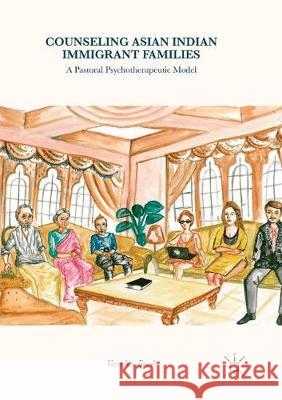Counseling Asian Indian Immigrant Families: A Pastoral Psychotherapeutic Model » książka
topmenu
Counseling Asian Indian Immigrant Families: A Pastoral Psychotherapeutic Model
ISBN-13: 9783319877679 / Angielski / Miękka / 2018 / 441 str.
Kategorie:
Kategorie BISAC:
Wydawca:
Palgrave MacMillan
Język:
Angielski
ISBN-13:
9783319877679
Rok wydania:
2018
Wydanie:
Softcover Repri
Ilość stron:
441
Oprawa:
Miękka
Wolumenów:
01











